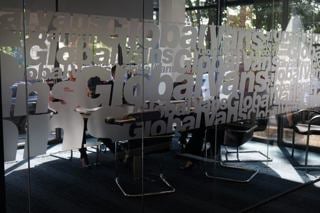The rise in the strength of the Euro, which has forced manufacturers to add thousands of pounds to the price of new cars over the past 18 months, has spelled bad news for the rental industry.
Those price rises have not been recovered through higher rental costs – in Germany for example, car hire is twice the price of the UK.
“The industry has not done a good job in recovering the currency losses because it’s such a competitive industry,” McCall says.
Focusing on customer service to boost volume and improve customer loyalty is the Europcar response.
McCall is targeting an 80% retention rate by 2014; today it is 59%.
He is also looking to build Europcar’s short-term rental volumes – typically one to three days’ hire – but says the company is the market leader in one-way rentals thanks to its UK coverage of 220 outlets and dominance at airports.
Further growth opportunities will come from a combination of pursuing specific market sectors and introducing new initiatives, including seven-day opening, and targeting smaller fleets and van hire.
Europcar also enjoys high market share in the replacement car market for courtesy cars.
Its van fleet of around 6,000 units is one of the youngest in the sector, averaging 14 months.
Its 50,000-strong car fleet, based on the buyback model, averages seven months.
That age has been steady despite availability issues as some manufacturers looked to reduce their exposure to rental in 2009-2010.
“Our strategy is the expansion our relationships with manufacturers – we have 26-27 and 100 different models,” says McCall.
“It’s about range and choice.”
Buyback, he adds, gives Europcar certainty with guaranteed residual values and knowledge of margins.
Manufacturers, he says, are happy as it gives dealers a source of used cars – but again, having a wide choice of partners helps, as does a Europe-wide relationship.
“We have the largest worldwide footprint and leadership in six of the biggest European markets,” McCall says.
“It gives us a broad relationship with manufacturers.”
‘Embarrassed’ McCall determined to drive up customer satisfaction
Europcar’s most important KPI is customer satisfaction measured via a number of criteria including service standards, availability, answering telephones and query resolution.
The weekly 500 calls to customers provide the majority of the service
feedback by means of three key questions, the final one of which is: ‘would you recommend Europcar to your family, friends and colleagues?’
The scoring is 1-10. Only a score of nine or 10 means that the customer is a repeat purchaser who will also be a promoter of the business.
Ken McCall’s target is to have 80% of customers answer with a nine or 10 within three years.
The company is currently at 59%, but started in the low 40s just five months ago.
“I was embarrassed by it,” McCall says with inherent honesty. “But we have rapidly improved.”
McCall on…
Happy staff
“We have an internal survey for staff and we get their feedback on ways to improve. Happy staff means happy customers – it’s critical.”
Customer demands
“They are rising. We tackle it by delivering within two hours to give our customers back their time. It’s about mobility and convenience.”
Electric vehicles
“We have a handful on the fleet. Interest is small but growing – there’s a desire but no infrastructure. But we have signed a Memorandum of Understanding with Daimler on electric vans in Paris and Hamburg.”
A greener fleet
“This is part of our fleet acquisition strategy. Our average CO2 is
under 159g/km and we want to bring this down each year. The customer is driving the market; tenders for corporate deals are always looking at it.”
The business
UK managing director Ken McCall
Time in role seven months
Fleet size 50,000 cars; 5,000-6,000 vans
Average age seven months cars; 14 months vans
Number of locations 220
Fleet-retail split 50-50


















Login to comment
Comments
No comments have been made yet.